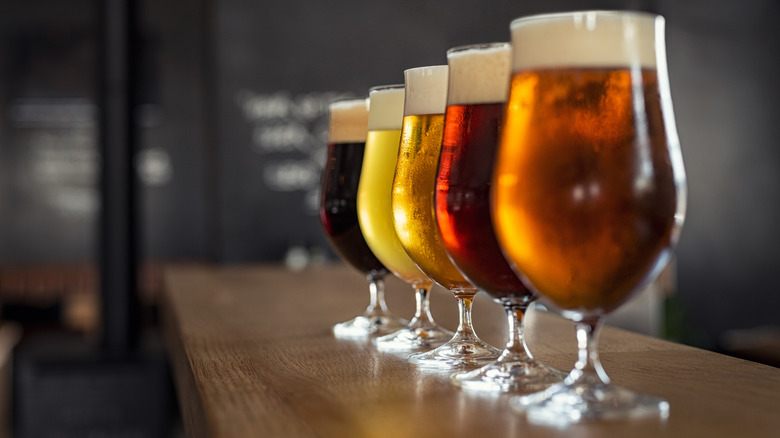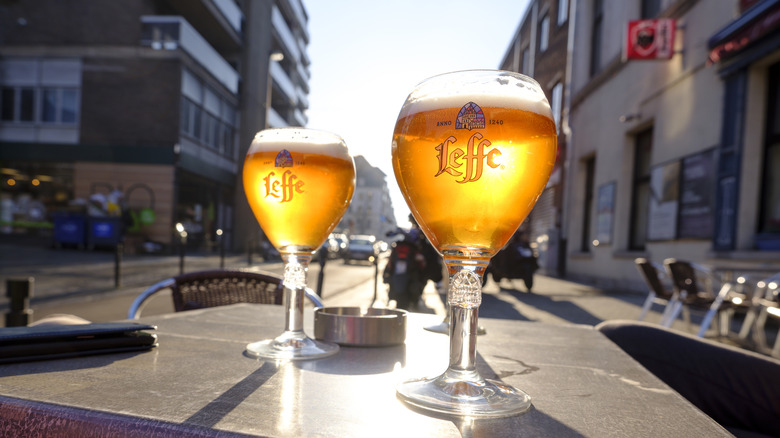What Does 'Skunked' Beer Actually Mean?
Every beer brewer strives to make the most delicious beer they can from the ingredients they select, whether it be barley, wheat, rice, or malt. The best breweries around the world pride themselves on their signature styles. According to the Brewers Association, there are more than 100 beer varieties, each with unique flavors and aromas ranging from light and tangy to bold and bitter. While some beers are crisp and refreshing, others are rich and full-bodied with spicy, herbal, and fruity notes. Then, of course, there are deep, robust beers that give flavors of caramel toffee, coffee, cocoa, smoke, and toast (per Splendid Table).
Yet once in a while, beer will exude the unmistakable scent of a skunk when poured into a glass to serve. As darling as those little black and white creatures might be, skunks are famous for pungent, pervasive, and lingering smells — and nobody wants that anywhere near their beer!
What causes a beer to go bad?
In Craft Beer's official glossary, skunked beer is more accurately described as "lightstruck," referencing the smell and taste beer develops after being exposed to sun and other light sources. VinePair indicates that this only happens with glass bottles, as ultraviolet rays permeate the glass and impact the beer. While this isn't necessarily harmful to consume, drinking a skunked beer is not the most optimal way to enjoy a pint.
CNN reveals brewers didn't understand the causes of this reaction until the 1960s. Brewers then switched to pouring brews into the brown beer bottles we see today in markets. While some European beer producers still adhere to local traditions of using green and blue glass bottles, these hues don't offer the same protection as dark brown or nearly black shades.
The best way to protect beer from going bad is to keep it cool and protected from excessive exposure to light. This often impacts a brewer's decision to package beer in a bottle or can, as even a few minutes of sunlight can cause skunky aromas to evolve. Drinking pints outside? Consider reaching for an opaque glass to help keep your beer prime.

